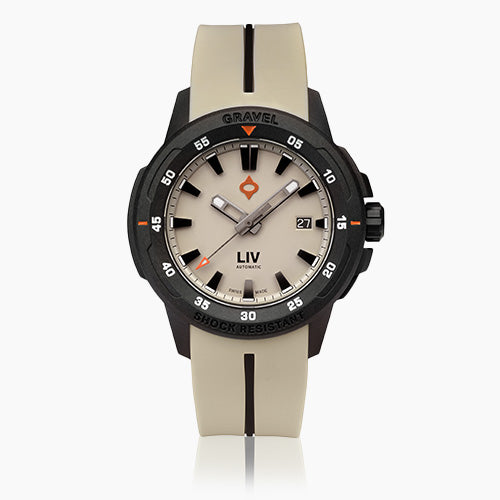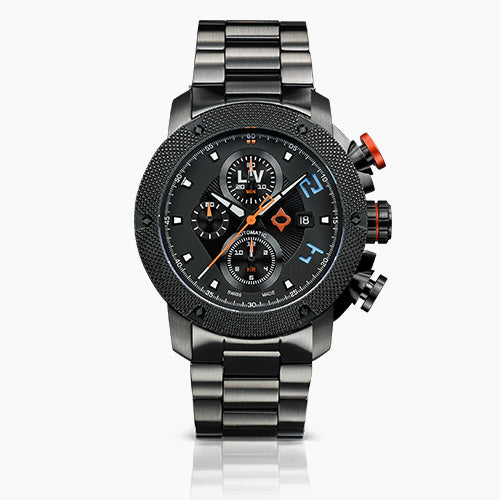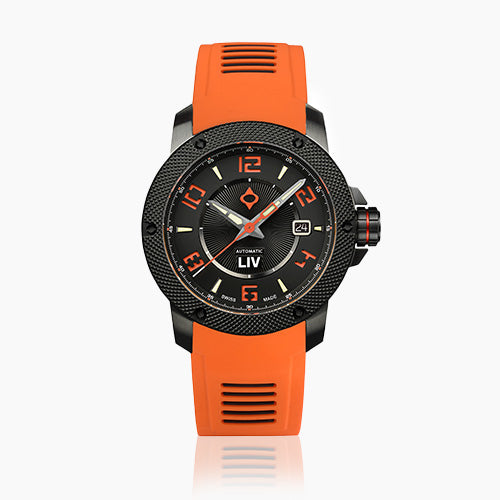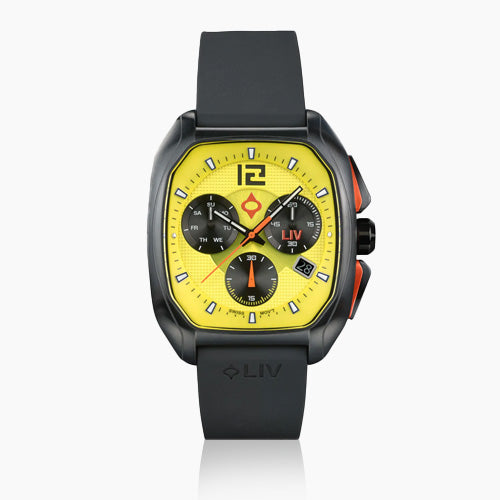
What Happens During a Watch Servicing (& How Often Should You Get it Done)?
Share
When Is The Best Time To Service Your Watch?
According to this author's research, the best time to service your watch is determined by these factors:
- Length of ownership
- Frequency of use
- Types of activities while wearing
- Issues with watch functionality
Length Of Ownership And Frequency Of Use
Think of the first two the same way you think of changing the oil in your car. For example, my service manual recommends an oil change every 6 months or 10,000 miles, whichever comes first. Synthetic oil is great!

Translating that to a watch, if you wear it regularly, you might want to service your watch earlier rather than later (more on service intervals later). If you wear it while engaged in sports or hobbies like woodworking or car maintenance, that interval might be even shorter.
On the other hand, or wrist in this case, if you rotate your watches and wear each one less frequently, you might be able to get by with a longer service interval. I say "might" because experts recommend regular use, or at least winding, of mechanical watches to keep the oils from gunking up and impacting function. Quartz movements are exempt here because, well, they do not need winding.
Service Intervals
Depending upon the caliber (movement) your mechanical watch uses, it appears every 5 years is the sweet spot to service your watch. My research seems to indicate that interval can extend to 7 years in the proper use case. This case is when you wear the watch fairly regularly, keep it wound when not in use, and don't engage in potentially contaminating activities, reviewed below.

When it comes to quartz calibers, some of the higher grade Swiss movements can be repaired which indicates to me that they should also be serviced. Some have more sophisticated gear trains than just a motor. If you have one of these premium calibers, it seems the range on servicing ranges from 10 years to never. To be on the safe side, make the interval 10-15 years. "Never" might not be the best choice.
Types Of Activities While Wearing

Better watches will have better protection against the infiltration of moisture, dirt and other contaminants. This is accomplished primarily by the use of gaskets at critical points such as the case back, the crown and any pushers. Superior fit and finish of all the case parts also is a contributor to gunk resistance.
Even with these protections, if you exercise wearing the watch, swim or dive, or have it on in dirty and dusty environments, gunk can make its way inside your timepiece. If you subject your watch to these conditions, stick with the shorter time intervals.
Issues With Watch Functionality

Any malfunction of a watch feature or complication can be a good indicator that it is time to service your watch. For example, losing time may mean the oils have gotten "sticky" or some other contaminant has fouled up the works.
Sticky pushers and improperly functioning indications of time and date are another telltale sign a service might be in your future. At the first sign of any serious malfunction, it's a great idea to check it out with a repair professional.
Service - What's Involved?
Let's move on to what is involved when you have a professional service your watch. I want to emphasize the importance of using a well-respected, highly rated professional person rather than your cousin Vinnie who has a few watch tools. Hey, I have all the tools necessary to service my watches and a couple of books on the subject. Even so, I am inclined to trust to experience of others.
Check out one page from Sellita's technical documentation for their SW500a. There are several pages covering the assembly of this premium Swiss movement. I am realistic enough to realize this task exceeds my skill level.
The Service Process - Mechanical Movements
In a nutshell, to service your watch a person must:
-
Completely disassemble the movement and keep track of all the tiny parts and pieces (check out the Sellita graphic one more time)

- Clean each part thoroughly
- Make repairs, if needed
- Relubricate the movement
- Correctly reassemble the movement - there shouldn't be any parts left over
- Replace all the gaskets
- Test the reassembled watch for proper function and accuracy
To me, this process isn't for the fainthearted. I have played around with movements to see what makes them tick (yes, pun intended), but only in situations where it doesn't matter if it never works again.
The Service Process - Quartz Movements
Service of a quartz caliber is going to be less involved for the simple reason the drive train and power supply consists of a motor and battery rather than gears and springs. Still, skill, care and experience are called for if you want the best results. The steps involved are identical to that for a mechanical movement, there are just fewer parts involved.
Special Considerations For Dive Watches
If the watch you want to service is a diver's model, it is even more important to trust it to a professional. Diver's watches have extra precautions added to allow them to achieve water resistance at 100 to 300 meters. During reassembly, the repair person must take special care to get all the gasketing reinstalled to its original condition. Mistakes here and your watch might fill up with water at an inopportune time.
Cost To Service Your Watch
Drumroll, please! So, how much does it cost to service your watch? Well, that depends on where you live, the availability of repair professionals and what needs to be done to your watch. The least expensive option is the disassembly, cleaning and reassembly service. Costs can add up if repairs are needed or if gaskets and other such components are hard to get.
Should You Service Your Watch?

That is entirely up to you. A good approach is to take your watch in and get an estimate for the service. If something isn't working properly, be sure to advise the folks so they can provide as accurate an estimate as possible. With the estimate in hand, it's time for a little math. Here's a handy formula:
- If: (purchase price + sentimental value) >= service estimate
- Then: Get the timepiece serviced
Where Do You Find a Trained Professional?
Thank goodness for the internet and search capabilities. Here are some suggestions that to get you going:
- You can start with a search for your watch make and model
- If you know the caliber, search for service recommendations
- You can contact the seller - might not be an option for eBay-type buys
- You can contact the manufacturer
- A cool fact about LIV Watches is that they are both manufacturer and seller!
- You can go to your jeweler
- You can search for watch repair services
Multiple estimates are always a good idea. Reading reviews is also important. Do your homework and be sure you are comfortable with the servicer.
The bottom line is this; if you really love a particular timepiece for whatever reason and you can afford to have it serviced, by all means, do so. In these cases, it's like the old Fram oil filter tag line, "You can pay me now, or you can pay me later."









